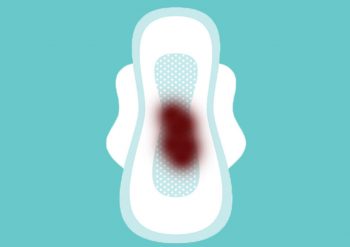Implantation bleeding is an early sign of pregnancy that occurs just before a missed period. How long does implantation bleeding last with twins ?
The occurrence of implantation bleeding with twins is generally no different than that of a singleton pregnancy. However, there are some factors that can affect how long it lasts and how severe it is.
In this post, we’ll take an in-depth look at implantation bleeding with twins and what you should expect.
What is Implantation Bleeding?
Implantation bleeding is caused by the fertilized egg burrowing into the uterine wall. This process damages the surrounding blood vessels, resulting in bleeding.
It usually occurs around 6-12 days after fertilization. Implantation bleeding isn’t the same as your regular menstrual bleeding.
It’s much lighter and shorter. In most cases, it’s just a few spots of blood or a light brownish discharge.

Implantation Bleeding with Twins – How Long Does it Last?
The duration of implantation bleeding varies from one woman to another. In some cases, it can last for just a few hours, while in others, it may last for several days. The bleeding may also vary in intensity.
But, if you are carrying twins, you may experience heavier implantation bleeding and cramping than in a singleton pregnancy. This is because the uterine lining has to accommodate two embryos.

You may experience implantation bleeding for a few days with twins, but if the bleeding lasts for more than a week, it is advisable to see a doctor.
Symptoms of Implantation Bleeding with Twins
As we have already mentioned, implantation bleeding is lighter and shorter than a regular period. But if you are carrying twins, the intensity of the bleeding may vary.
Some women may experience heavy spotting or light bleeding, while others may have only occasional spotting. You may also experience mild cramping, bloating, and some degree of fatigue.
When to See a Doctor
If you are pregnant and experience bleeding, it is always essential to contact your doctor. Implantation bleeding with twins is a normal occurrence and should not be a cause for concern.
However, if you experience heavy and prolonged bleeding, severe cramping, fever, or chills, you should see a doctor immediately. These could be signs of ectopic pregnancy, miscarriage, or an infection.

How to Manage Implantation Bleeding
There is no specific way to manage or stop implantation bleeding. However, you can use sanitary pads to manage the bleeding and protect your clothes.
Avoid tampons as they can increase your risk of infection. Additionally, avoid strenuous physical activities or heavy lifting that can strain the uterus.
Implantation bleeding is a common sign of pregnancy, and it usually occurs around the time of your missed period.
It is a natural phenomenon that occurs as a result of the fertilized egg attaching to the uterine lining.
If you are carrying twins, you may experience heavier bleeding than in a singleton pregnancy. However, this is often a normal occurrence and should not be a cause for concern.
If you are pregnant and experience any unusual symptoms, including heavy bleeding or severe cramping, it’s always essential to contact your doctor.
They will be able to help you manage any complications during your pregnancy and ensure that you have a healthy pregnancy.


